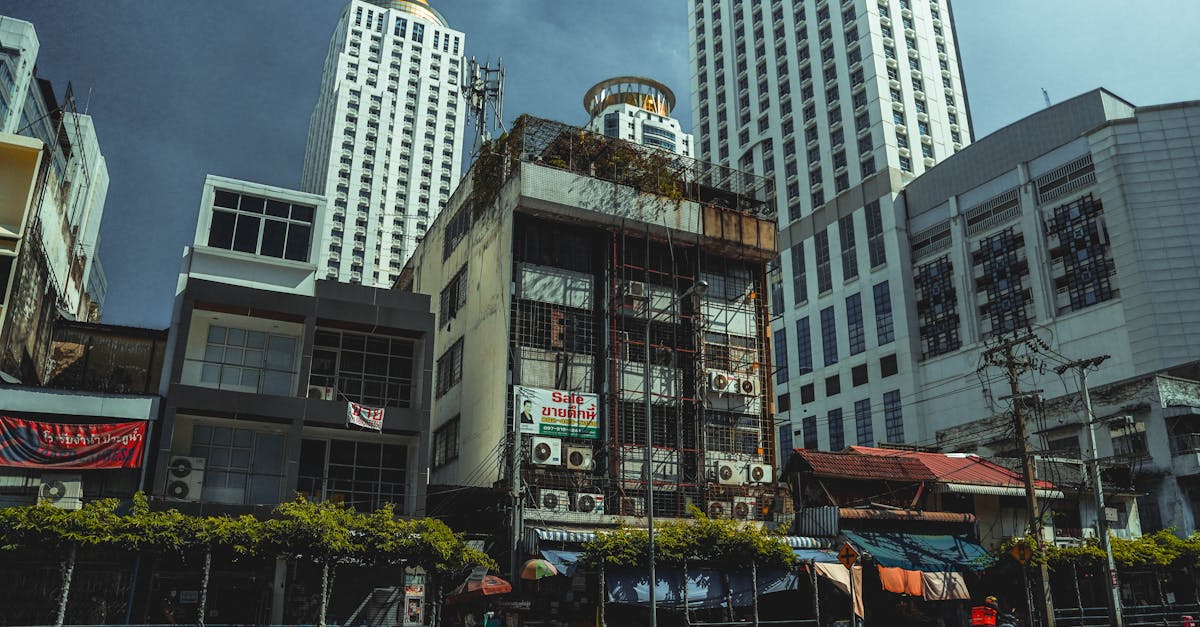Commercial Roof Replacement Sydney

Table Of Contents
When it comes to maintaining the integrity and safety of commercial properties, choosing the right service provider for roof replacement is crucial. In Sydney, businesses are increasingly looking for reliable and effective Industrial Roofing Solutions Sydney that can withstand the region's unique weather conditions. Understanding the importance of a durable roof can help property owners make informed decisions about their investments, ensuring long-term protection and value for their buildings.
Sydney's commercial landscape is diverse, and with the growing demand for quality infrastructure, the need for professional roof replacement services has never been more significant. By exploring industrial roofing solutions sydney, property owners can find options that not only enhance the aesthetic appeal of their buildings but also provide essential protection against environmental factors. Whether for new constructions or renovations, understanding the range of services available for roof replacement for commercial properties in Sydney can empower business owners to choose the best solutions for their needs.
Understanding Costs of Industrial Roof Overhaul in NSW
Exploring costs associated with business roofing replacement is essential for building owners in NSW. Elements such as material choice, size of the roofing structure, and manpower expenses can all greatly affect the overall investment. Furthermore, permitting requirements and the condition of the existing roof can also factor in to the final cost incurred.
As of calculating the expenses for a business roofing replacement, business owners should also consider possible future savings. Allocating resources in high-quality roof systems may lead to lower maintenance costs and better energy efficiency over time. Consulting a professional roofing contractor can provide helpful insights into the best options that align with budget while ensuring durability.
Considerations That Affect Roofing Replacement Pricing
While planning a roofing job, several considerations come into play that affect the overall estimate. One of the consideration is the type of material used for the roofing system. Various materials, such as asphalt shingles, involve different price points and lifespans. Additionally, the intricacy of the roofing structure can heavily impact labor costs. Steeper roofs typically require additional effort, which can raise the final cost.
Another consideration that impacts roof estimates is the scale of the roof. Larger roofs will typically require more materials and effort, leading to elevated costs. Regional factors also play a part in influencing estimates, as work rates and material availability can vary by location. Local regulations and zoning laws can also affect the total estimate of a roof project, making it essential to factor in these elements during the planning phase.
Choosing the Most Suitable Roof Material for Your Industrial Roof Replacement
In the process of considering your industrial roof overhaul, a crucial aspect involves selecting the best roofing type. Various materials provide distinct advantages that can impact the longevity and performance of your roofing system. For example, metal roofs is recognized for its durability and energy efficiency, while thermoplastic olefin provides a more budget-friendly solution with great reflective properties.
A vital step to think about your facility's specific needs and environmental conditions when finding a roofing type. Moreover, engaging a qualified roofing contractor can help you explore the multiple options available, ensuring you make an informed decision. Professionals can provide valuable insights into the installation techniques and care needs for each type of roofing material. This information can help you enhance the benefit of your industrial roof investment.
Benefits and Disadvantages of Widely Used Roofing Materials
When considering a commercial roof replacement in Sydney, it is essential to evaluate the advantages of common roofing materials. Metal roofing offers longevity and ease of care, making it a popular choice for many business owners. Additionally, metal roofing can reflect heat, leading to lower energy costs over time. Asphalt roofing are another common option due to their economic viability and simple installation, providing a decent solution for many commercial properties.
On the other hand, there are also drawbacks to consider when selecting roofing materials. For instance, metal options can be more costly initially, which may not fit every budget. Furthermore, they can be louder during rain or hail, potentially causing disturbances inside the building. Asphalt roofing may present issues such as limited durability compared to other materials and can be prone to deterioration from extreme weather conditions. Ultimately, weighing the advantages against the drawbacks is crucial for making an informed decision about the best roofing option for a commercial property.
Understanding Rewards of Spending in Industrial Roofing Reinstallation
Spending in industrial roofing overhaul delivers numerous benefits for property owners. One new roof can significantly enhance the overall appeal of a building, resulting in a more appealing appearance. Additionally, a modern roofing system can increase property value, making it more appealing to potential tenants or buyers.
Another key advantage of industrial roofing overhaul is the potential for energy savings. Replacing an old roof with energy-efficient materials can decrease heating and cooling costs, which provides long-term savings. Plus, a new roof can help in avoiding leaks and water damage, which can result in costly repairs down the line. Overall, investing in roofing overhaul is a prudent choice for any commercial property owner.
Importance of Upgrading Your Commercial Roofing
Upgrading your commercial roof can significantly enhance the overall value and appeal of your property. A well-maintained roof not only protects your investment but also contributes to energy efficiency. This can lead to lower utility costs and a more comfortable working environment for employees. Additionally, a new roof can improve the aesthetic appeal of your building, making it more attractive to potential clients or customers.
Investing in roof upgrades is essential for maintaining structural integrity. Over time, roofs can suffer from wear and tear due to weather conditions, which can lead to leaks and other issues if not addressed. By renewing your commercial roof, you are ensuring that your building remains safe and secure for occupants. Moreover, a modern roof system can offer enhanced durability, reducing the need for frequent repairs or replacements in the future.